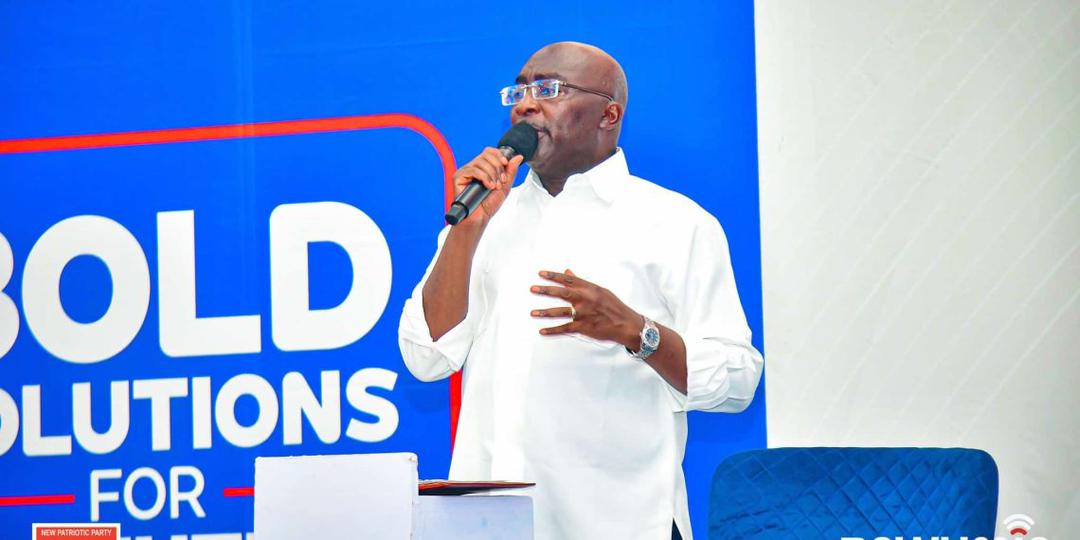Bawumia Raises Alarm on Political Persecution
Former Vice President Dr. Mahamudu Bawumia has voiced strong concerns over what he describes as harassment and persecution of New Patriotic Party (NPP) members under the administration of former President John Dramani Mahama.
Speaking during a campaign engagement in the Ashanti Region on Wednesday, September 10, Dr. Bawumia alleged that some of his party’s leading figures, alongside ordinary supporters and social media influencers, were being unfairly targeted through arrests and investigations. He warned that such developments, if left unchecked, risk undermining Ghana’s democratic values.
Examples of Political Persecution Cited
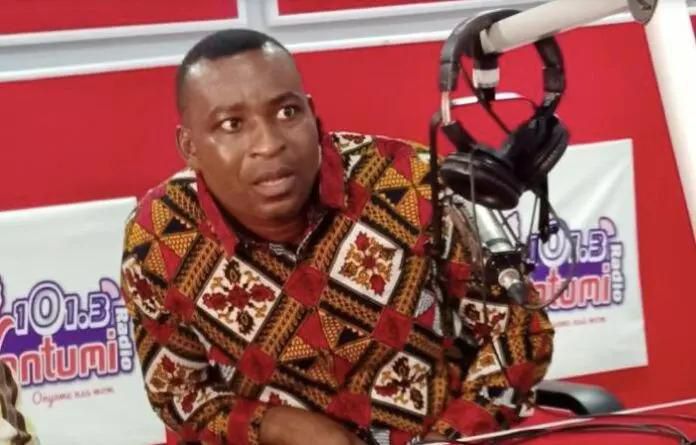
In his remarks, Dr. Bawumia referenced the recent arrests of Bono Regional Chairman Kwame Baffoe, popularly known as Abronye, and Ashanti Regional Chairman Bernard Antwi-Boasiako, widely referred to as Chairman Wontumi. Both men are high-profile figures within the NPP and have played key roles in the party’s organizational and campaign machinery.
According to Dr. Bawumia, these arrests exemplify what he believes is a broader campaign of political persecution. He further alleged that government authorities have extended such measures to bloggers, TikTok personalities, and online communicators sympathetic to the NPP.
“We are witnessing the targeting of our appointees, our communicators, and even young people on social media. This is not healthy for our democracy,” he told supporters at the rally.
A Call for NPP Unity
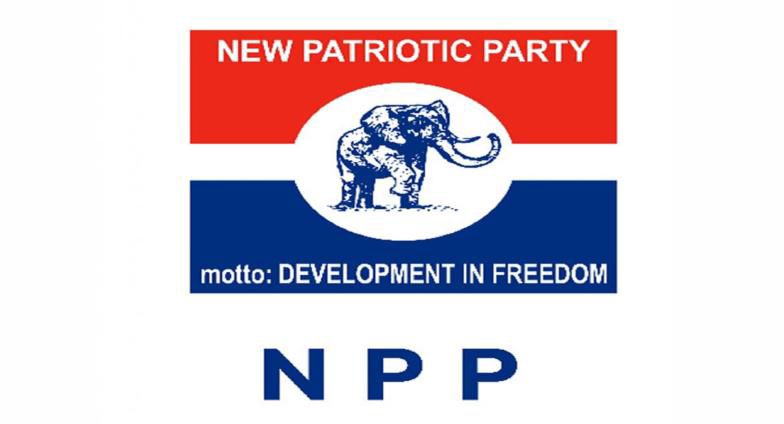
The former Vice President used the occasion to remind party faithful that internal solidarity would be crucial in overcoming the challenges he described. He emphasized that the New Patriotic Party’s chances in the 2028 general elections would depend largely on how well its members remain united despite external pressures.
“Regardless of what is happening, the NPP must stand strong together. If we remain united, we can secure victory in 2028,” Dr. Bawumia said.
Broader Implications for Ghanaian Democracy
Dr. Bawumia’s concerns touch on a recurring issue in Ghana’s political system: the perception that changes in government often lead to investigations, arrests, or prosecutions of members of the outgoing administration.
Analysts note that this cycle has been a defining feature of Ghana’s Fourth Republic. After the NPP left office in 2009, several officials from the Kufuor administration faced investigations under the Mills-led NDC government. Similarly, when the NPP returned to power in 2017, some NDC officials raised alarms over alleged politically motivated prosecutions.
For ordinary Ghanaians, this trend raises questions about the independence of law enforcement and judicial bodies. If institutions are perceived to serve political interests rather than the broader cause of justice, it can erode public trust in governance and weaken the rule of law.
Civil Society Perspectives
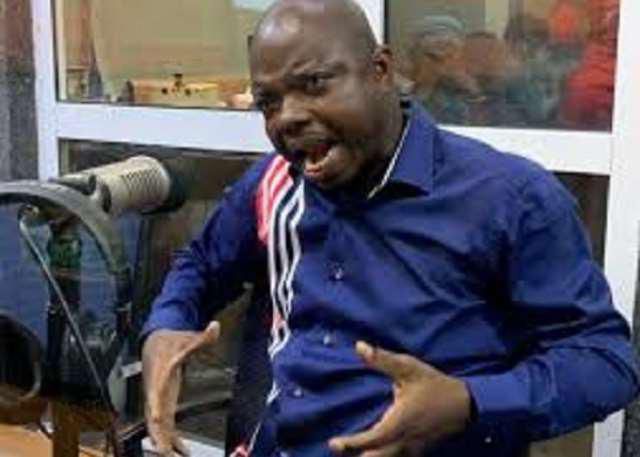
Civil society organizations have long cautioned against the politicization of state institutions. Groups such as the Centre for Democratic Development (CDD-Ghana) have consistently called for reforms that would guarantee greater autonomy for investigative and prosecutorial bodies.
Commenting on the recurring cycle of political accusations, a governance analyst, speaking on a local radio discussion program, noted:
“Both parties need to break away from this culture of retribution. Ghana’s democracy will be stronger if accountability is pursued fairly and not seen as political witch-hunting.”
This perspective suggests that while governments must hold public officials accountable, such actions should be based on transparent legal processes rather than partisan motives.
Why Political Persecution Matters to Citizens
For the average Ghanaian, allegations of political persecution are not merely about party politics. They touch directly on issues of fairness, freedom of expression, and confidence in national institutions. When political opponents, journalists, or social media users are seen as being unfairly targeted, it can create an atmosphere of fear and self-censorship, limiting open political discourse.
Furthermore, a climate of political retribution may distract from the pressing economic and social challenges facing the country. With rising costs of living, youth unemployment, and demands for better infrastructure, citizens expect leaders to prioritize development over partisan battles.
Looking Ahead to the 2028 Elections
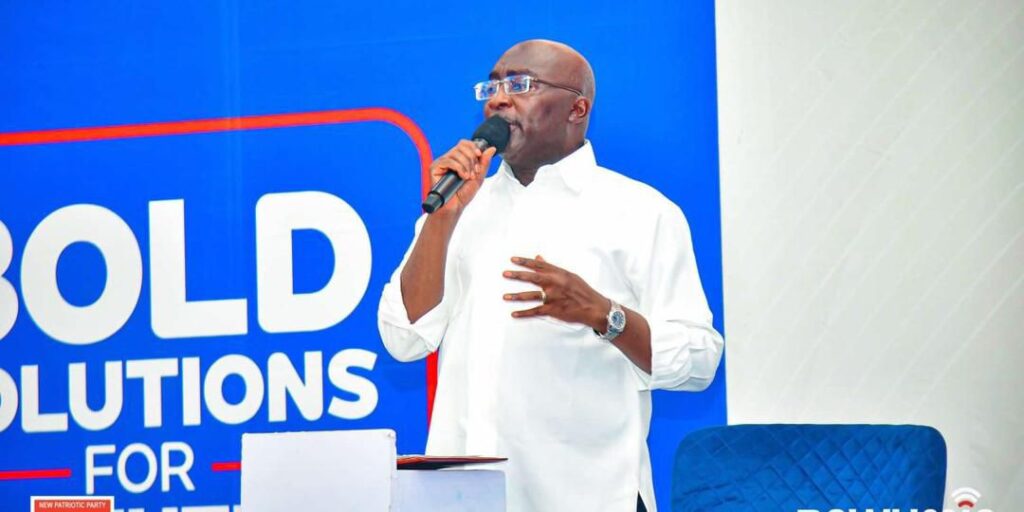
As the political temperature gradually rises ahead of the 2028 general elections, Dr. Bawumia’s remarks highlight the NPP’s focus on internal cohesion as a strategy for regaining power. At the same time, the issue of political persecution is likely to remain a talking point in national debates, with the opposition NDC expected to defend its record while pointing to its own claims of victimization in the past.
The months ahead may see intensified political rhetoric, but observers argue that the strength of Ghana’s democracy will depend on whether institutions such as the Electoral Commission, judiciary, and security services can maintain neutrality and resist political interference.
Takeaway for Readers
The allegations raised by Dr. Bawumia remind Ghanaians of a broader challenge facing the nation’s democracy: the cycle of political retribution that often follows a change of government. Breaking this cycle will require not only political will from both the NPP and NDC but also active citizen demand for fairness, transparency, and institutional independence.
For voters, the practical lesson is clear. Beyond partisan loyalty, strengthening Ghana’s democratic foundations requires holding all leaders accountable, ensuring that justice is served impartially, and keeping the focus on policies that improve the lives of citizens.
Read also: Mahama Strongly Rejects ‘Supreme Leader’ Allegations Amid Judicial Shake-Up

